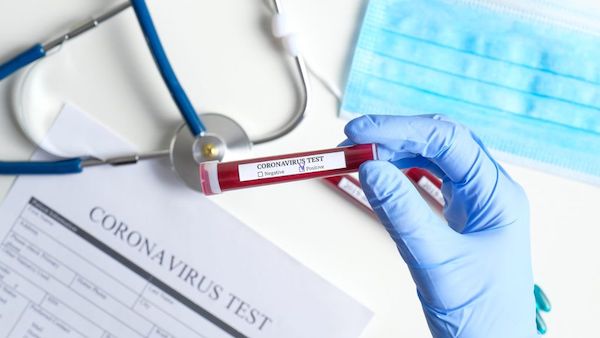Metro
Hepatitis patients more at risk of severe cases of COVID-19 –WHO

The World Health Organisation has said that people with Hepatitis related complications are more prone to severe cases of COVID-19.
The Regional Director for Africa of the WHO, Dr. Matshiddiso Moeti stated this in her message commemorating the World Hepatitis Day 2020, to increase awareness of this public health threat.
The World Hepatitis Day is observed on July 28 every year to raise global awareness of hepatitis — a group of infectious diseases known as Hepatitis A, B, C, D, and E — and encourage prevention, diagnosis and treatment.
According to Moeti, people with hepatitis-related complications are at a higher risk of COVID-19 and must continue to receive essential hepatitis prevention and treatment services during the pandemic and beyond.
“With political commitment from governments and partners, backed by financing and integrated using a health system strengthening approach, and with informed and empowered communities, we can achieve a Hepatitis free future”, she said.
She further stated that of the 71 million Africans with chronic viral hepatitis, 300 people sadly lose their lives daily from liver cancer and other complications related to hepatitis B and C infections.
Moeti, who noted that Hepatitis B comprised 85 per cent of the hepatitis burden in the WHO African Region, said the most vulnerable time for infection is in the first month of life, and this can be prevented with hepatitis B birth-dose vaccination in the first 24 hours of life.
“Achieving at least 90 per cent coverage in the Region would prevent over 1.5 million new infections and 1.2 million deaths from liver cancer by 2035.
“Hepatitis B can go undetected for years and have devastating consequences. For example, Ansah, a 25-year old Ghanaian woman, was diagnosed with hepatitis B and liver cancer during antenatal care.
Read also: COVID-19: Recorded cases in Ogun hit 1,301
“Her baby was protected with hepatitis B birth-dose vaccination administered within 24 hours of birth, but Ansah’s future is uncertain.
“Her family said: “We did not know that the infection could be so silent and the consequences so grave”, the WHO official said.
She further claimed that despite the low cost of the hepatitis B birth dose vaccine, only 13 African countries had introduced it, far short of the target of 25 countries by 2020.
“So far, 15 countries have launched national hepatitis plans, and Rwanda and Uganda have national testing and treatment programmes for hepatitis.
“WHO is working with countries and partners to accelerate action towards a 90 per cent reduction of new hepatitis B and C infections and a 65 per cent reduction of deaths by 2030.
“Achieving these goals requires the urgent introduction and scaling-up of hepatitis B birth-dose vaccination and leveraging the HIV and syphilis infrastructure to prevent mother-to-child transmission and ensure mothers have access to testing and treatment.
“I commend the Organisation of African First Ladies, in this regard for advocating triple elimination of mother-to-child transmission of HIV, syphilis and hepatitis B.
“As we battle COVID-19, the threat of further delays to scaling-up hepatitis B birth-dose vaccination and other essential hepatitis services looms large,’’ she said.
Join the conversation
Support Ripples Nigeria, hold up solutions journalism
Balanced, fearless journalism driven by data comes at huge financial costs.
As a media platform, we hold leadership accountable and will not trade the right to press freedom and free speech for a piece of cake.
If you like what we do, and are ready to uphold solutions journalism, kindly donate to the Ripples Nigeria cause.
Your support would help to ensure that citizens and institutions continue to have free access to credible and reliable information for societal development.
























